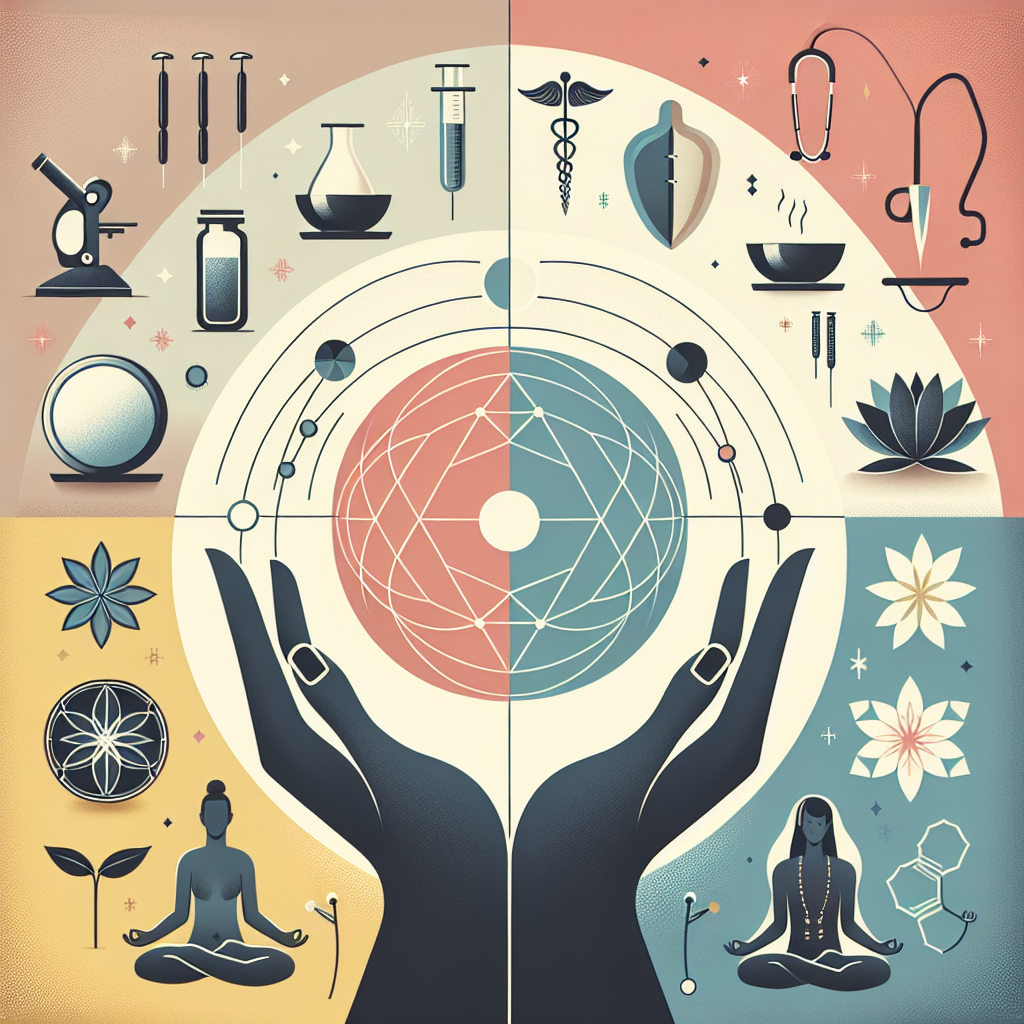Bridging Worlds: Integrative Approaches to Cancer Treatment through Western Medicine and Eastern Traditions
Cancer remains one of the most formidable challenges in medical science, affecting millions globally each year. With its multifaceted nature, cancer demands a versatile and comprehensive approach to treatment. Historically, Western medicine and Eastern traditions have offered distinct methodologies, each with its strengths and limitations. By bridging these worlds, we can create an integrative approach that maximizes patient outcomes and improves quality of life. This article explores the comparative and contrasting treatment modalities of Western medical practices and Eastern traditional approaches in the realm of oncology.
The Western Medical Approach
Western medicine, also known as allopathic or conventional medicine, relies heavily on evidence-based practices, scientific research, and technological advancements. The primary modalities of cancer treatment in Western medicine include surgery, chemotherapy, radiation therapy, immunotherapy, and targeted therapy.
1. Surgery: Often the first step in treatment, surgery aims to remove malignant tumors physically. It is most effective when the cancer is localized and hasn’t metastasized.
2. Chemotherapy: Utilizes powerful drugs to kill rapidly dividing cancer cells. Despite its efficacy, chemotherapy can also harm healthy cells, leading to side effects like fatigue, nausea, and hair loss.
3. Radiation Therapy: Employs high-energy radiation to destroy cancer cells. Precision in targeting minimizes damage to surrounding healthy tissues, but side effects can still occur.
4. Immunotherapy: A relatively newer approach, immunotherapy boosts the body’s immune system to fight cancer more effectively. It has shown promise in treating various types of cancer but can provoke immune-related side effects.
5. Targeted Therapy: Focuses on specific molecules and signaling pathways that are crucial for cancer cell survival and proliferation. By honing in on these targets, this therapy aims to minimize collateral damage to healthy cells.
The Eastern Traditional Approach
Eastern traditions, particularly those rooted in Traditional Chinese Medicine (TCM) and Ayurveda, offer a holistic perspective on cancer treatment. These systems emphasize the balance of the body, mind, and spirit, utilizing natural remedies, dietary adjustments, and mind-body practices.
1. Herbal Medicine: TCM and Ayurveda employ a vast array of herbs believed to possess anti-cancer properties. For example, TCM utilizes herbs like astragalus and ginseng to boost the immune system and improve overall health.
2. Acupuncture: This ancient practice involves inserting fine needles into specific points on the body to balance energy flow, or “Qi.” Acupuncture is often used to alleviate pain, reduce chemotherapy-induced nausea, and improve overall well-being.
3. Dietary Therapy: Both TCM and Ayurveda emphasize the importance of diet in maintaining health and combating disease. TCM recommends foods that balance Yin and Yang, while Ayurveda suggests dietary regimens based on one’s body type, or “dosha.”
4. Mind-Body Practices: Techniques such as Tai Chi, Qigong, and Yoga are integral to Eastern traditions. These practices aim to harmonize the mind and body, reduce stress, and enhance physical and mental resilience.
5. Detoxification and Cleansing: Ayurveda, in particular, focuses on eliminating toxins from the body through practices like Panchakarma. This is believed to rejuvenate the body’s systems and enhance its ability to fight cancer.
Comparative Analysis
Scientific Rigor vs. Holistic Approach:
Western medicine operates on the paradigm of scientific rigor, employing randomized controlled trials and peer-reviewed research to validate treatments. This approach ensures that therapies are effective and safe. In contrast, Eastern traditions emphasize a holistic approach, focusing on the body’s intrinsic ability to heal itself. While scientific validation of some Eastern practices is ongoing, the holistic nature of these treatments addresses the patient’s overall well-being, beyond just the physical symptoms of cancer.
Symptom Management vs. Root Cause:
Western medicine primarily targets the cancer itself, aiming to eradicate malignant cells and prevent recurrence. This often results in significant symptom relief but can sometimes overlook the root causes of cancer, such as lifestyle factors and emotional well-being. Eastern approaches, however, delve deeper into identifying and rectifying imbalances in the body and mind that may contribute to cancer development. By addressing these root causes, Eastern traditions aim to create a more sustainable path to health.
Side Effects and Quality of Life:
Chemotherapy, radiation, and other Western treatments can have debilitating side effects that impact a patient’s quality of life. Eastern practices often focus on ameliorating these side effects. For example, acupuncture has been shown to reduce chemotherapy-induced nausea and pain, while herbal medicine can strengthen the body’s resilience during conventional treatments. Mind-body practices like yoga and meditation are known to reduce stress and improve mental health, further enhancing the patient’s quality of life.
Integrative Oncology: The Best of Both Worlds
Integrative oncology is an emerging field that seeks to combine the best aspects of Western and Eastern approaches to provide comprehensive cancer care. This multidisciplinary approach involves oncologists, naturopaths, acupuncturists, nutritionists, and mental health professionals working together to develop personalized treatment plans.
1. Personalized Medicine: By combining genetic profiling and targeted therapy from Western medicine with the individualized treatment plans of TCM and Ayurveda, integrative oncology offers a tailored approach to cancer care.
2. Supportive Care: Integrative oncology emphasizes supportive care, using Eastern practices to manage side effects and improve quality of life during conventional cancer treatments.
3. Prevention and Wellness: Incorporating dietary therapy, herbal medicine, and mind-body practices can enhance overall health and potentially reduce the risk of cancer recurrence.
Conclusion
Cancer treatment is at a pivotal juncture, where the convergence of Western medical advancements and Eastern holistic traditions offers a promising path forward. By embracing an integrative approach, we can harness the strengths of both paradigms to provide more effective, personalized, and compassionate care for cancer patients. As research continues to validate and refine these integrative methods, the future of oncology looks increasingly hopeful, bridging worlds for the betterment of humanity.

